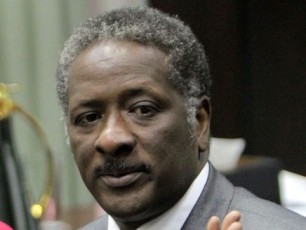NCP Okays lifting of fuel subsidies as MPs demand sacking of Sudan’s finance minister
June 1, 2012 (KHARTOUM) – The leadership office of Sudan’s ruling National Congress Party (NCP) approved on Thursday a proposal recommending the removal of fuel subsidies to avert collapse of the country’s economy amid a great deal of internal opposition.

Senior NCP officials speaking to Sudan Tribune on the condition of anonymity said that the proposal to lift fuel subsidies had faced strong resistance from members of the party’s parliamentary bloc headed by the presidential adviser Ghazi Salah Al-Din Al-Atabani.
The NCP’s parliamentary bloc already approved the plan to lift fuel subsidies two days ago but demanded parallel measures to mitigate its effects. The point of their concern is that the decision might spark street protests that would be hard to contain.
The sources also revealed that NCP’s MPs had submitted a memorandum to President Al-Bashir demanding that the government meets a set of conditions in exchange for their approval to lift fuel subsidies.
Among these conditions, the sources said, is that the government must give MPs a written pledge to reduce the number of ministers to 25, cut perquisites of constitutional post-holders, and most importantly, sack the minister of finance Ali Mahmoud on account of his responsibility for a number of wrong economic policies.
The MPs stressed that these conditions must be met if the government wants them to approve the proposed measure when it is tabled before the parliament next week.
Meanwhile, other sources told Sudan Tribune that the head of the NCP’s economy sector, Sabir Mohammed Al-Hassan, also presented President Al-Bashir with a memorandum detailing a three-phase plan to remedy the current situation in the economy.
The first phase in Sabir’s plan is to reduce the size of the cabinet, the second is to force the ministries of electricity, defense and the National Intelligence and Security Services (NISS) to have their accounts audited by the Ministry of Finance as opposed to the “evasion” of financial accountability practiced by these bodies.
The third phase in Sabir’s plan is to lift fuel subsidies. His memo pointed out that the execution of the first and second phase of the plan would make the Sudanese public understands why the government was cutting fuel subsidies.
In a related context, the NCP’s vice-chairman Nafie Ali Nafie said on Thursday that his party had received support from parties participating in the government for the decision to lift fuel subsidies.
Nafie told reporters in Khartoum that all groups involved in the government had reached a consensus on the importance of adopting measures that would stabilise the economy, curb inflation and reduce spending as a step towards recovering the economy.
Sudan’s economy has been ailing since the country lost 75 percent of its oil revenues when South Sudan seceded in July last year. As a result, the local currency has been depreciating, inflation has been rising and food prices jumped to unprecedented levels.
Sudanese officials have been talking about a three-phase austerity plan to stabilise the economy in the short run but there appears to be no concrete plans for the long run in terms of diversifying the economy and breaking its dependency on oil.
(ST)
